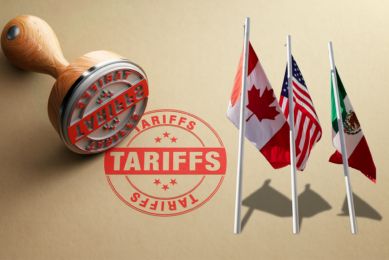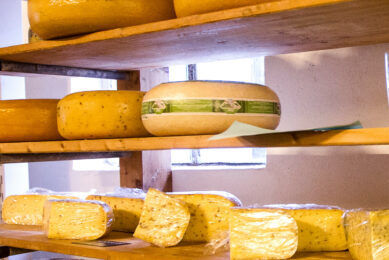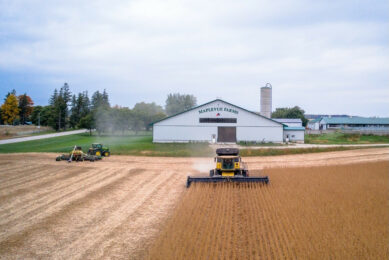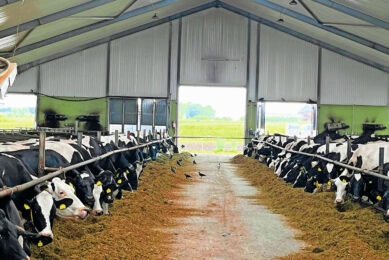A family dairy farm making Canada greener
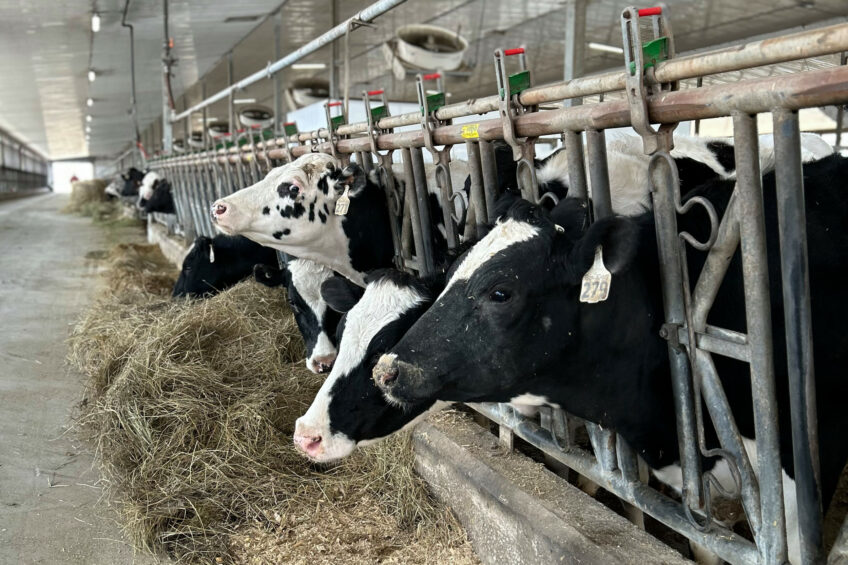
I recently had the pleasure of visiting one of Canada’s largest single-site dairy farms in Ilderton, Ontario. At this 5-generation family farm, not only is the scale of the operation impressive, but its commitment to the environment as well as its community is extraordinary.
On my visit to this farm in Ontario, Canada, I met with Jim Stanton who is key in the day-to-day running of this family dairy operation that focuses on sustainability and innovation. When we arrived, Jim took us through the farm’s journey, it’s old location in London, Ontario, and its journey to where the farm is now located in Ilderton.
Stanton Farms boasts 3,000 dairy cattle, milking 1,000 dairy cows 3 times per day and is a groundbreaker in agricultural-based renewable energy production in Canada. The operation, which is one of the first of its kind in Canada, has on-farm anaerobic digestion systems for biogas production from organic waste, which supplies renewable energy production and decreases methane and GHG emissions.
A greener Canada
The Stanton’s farm has its roots in Ontario. Farming was first established in Woodstock and then moved to London, Ontario. In 2006, the farm relocated to Ilderton for a bigger location to grow with its ambitions and with less farming impact on the community. In 2007, at the new location, Stanton Farms installed its first anaerobic digester on-farm. This was also one of Canada’s first anaerobic digestion systems for biogas production.
When the digester was first established, the thought was that animal waste would go into the digester to create biogas to generate renewable energy to power the farm. However, it has now become an integral part of building a greener local community as well as making its mark in contributing to Canada’s sustainability efforts.
After some years, in 2018, Stanton Farms built a completely new biodigester and shut down the old one. Taking the lessons learnt from the old biodigester, in 2022, a second biodigester was added as a renewable natural gas facility – using organic waste from the farm and the local community, diverting it from the landfill.
To date, the farm is a key part of a sustainable community in Ilderton, Canada, as it provides 3 million cubic metres per year of RNG to the Ontario natural gas network, for more than 10 years now this has provided renewable energy to over 1,300 homes in the community.
“In October 2022, we expanded and the biogas facility produces renewable natural gas from community-based and on-farm organic waste,” Jim confirms. The milk that Stanton Farms produces comes from a farm using 100% renewable energy.
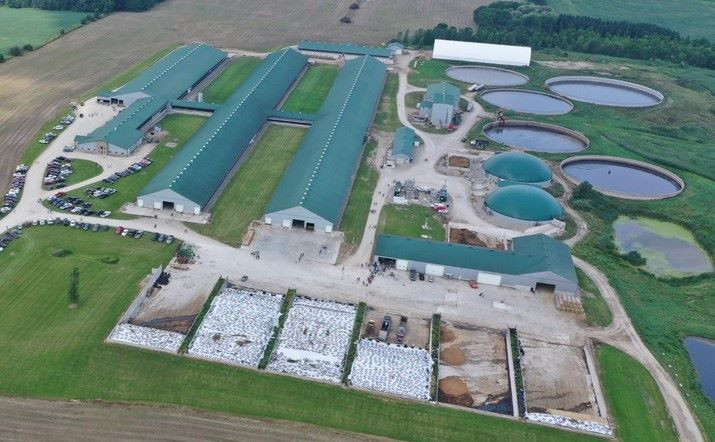
In numbers, 60,000 tonnes per year of community-based organic waste is diverted from landfill, reducing methane emissions, and over 11,000 tonnes per year of greenhouse gas emissions is eliminated. On-farm by-products are recycled to create a closed-loop sustainable system. The recycling process includes nutrient-rich liquid which is turned into animal bedding.
The farm also focuses on reducing its water footprint. Water on the farm is reused as many times as possible. Jim adds that most of the water goes to feeding the cows and that a unit of water is recycled many times before it is dispensed through the biogas facility and then added to the lagoon.
“Canadian energy firm, Enbridge, works with Stanton Farms,” says Jim. The farm’s renewable natural gas facility injects more than 3 million cubic metres (m3) of renewable natural gas per year to Ontario’s natural gas network.
Quality genetics
Stanton Genetics, a division of Stanton Farms, serves as a global leader in Holstein dairy genetics, marketing globally and domestically. The division was established in 2021 and exports its genetics to the international market – the focus is on high genetic merit animals with healthier and more resilient livestock.
“Stanton Genetics has also developed quality polled genetics – animals born without horns,” says Jim. He believes that this is better than having to dehorn animals, and focusing on quality polled genetics is key welfare of the animal.
Jim: “The breeding programme focuses on sustainability and being able to sustain quality production over the lactation period.”
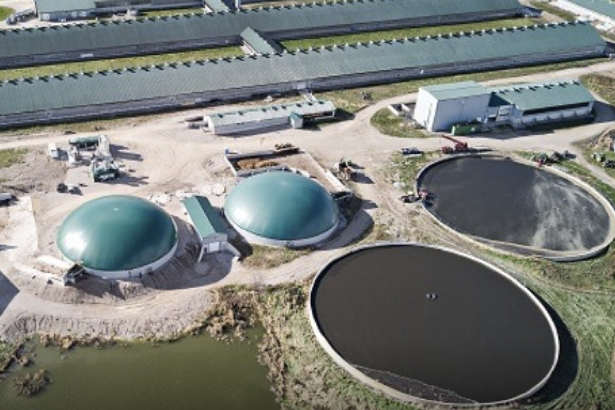
Dairy awards
Stanton Farms has been awarded the TD Canadian 4-H Dairy Classic’s Breeder of Distinction for 2023. Stanton Genetics is known globally for quality and has distributors in Australia, Europe and the US. Some of the awards on display at the farm can be seen when first stepping into the hallway.
A number of awards have been given to Stanton Farms for agri-innovation, including Ontario Premier’s Award for Agri-Food Innovation Excellence and the Ontario Energy Association Certificate of Achievement for Renewable Energy Innovation. Since 2010, the farm has also been recognised as a Master Breeder by Holstein Canada. In 2023, Stanton Farms also received Alltech Canada’s Planet of Plenty award.
In addition, the dairy operation also collaborates with universities as part of research initiatives. Stanton Farms has made a sustainable commitment, not only on-farm, but it has also made its mark by extending its success to the Ilderton community. It is evident throughout the farm that Stanton Farms is a leader in sustainable farming practices.



